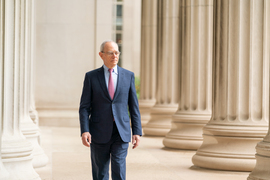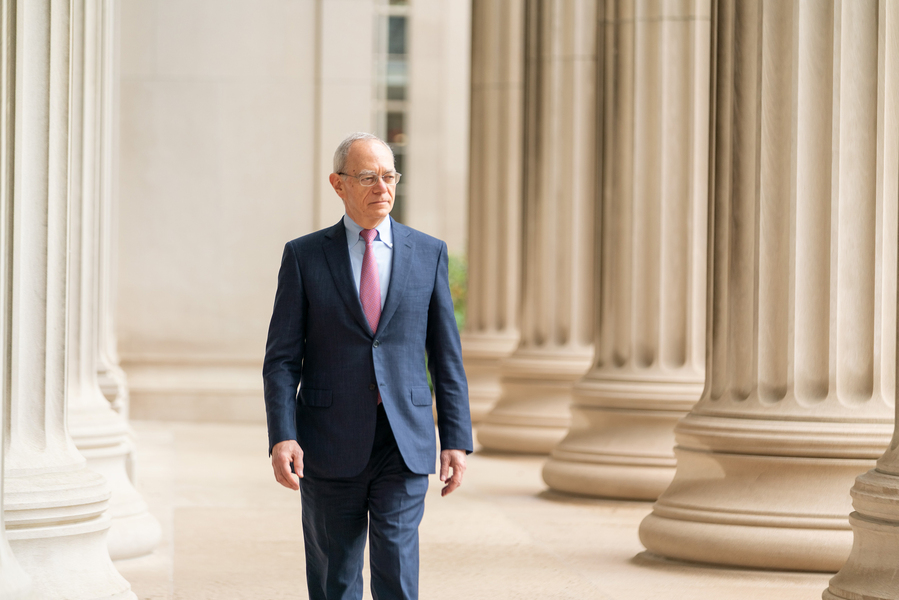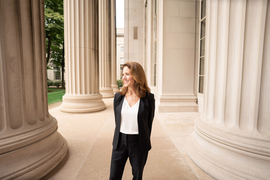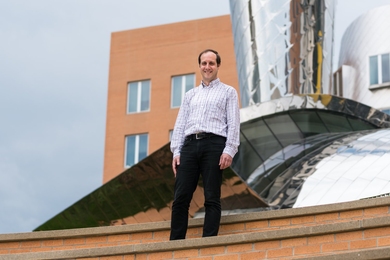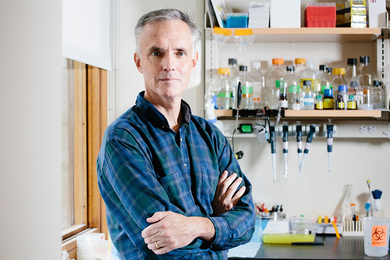Earlier this month, President L. Rafael Reif announced that Cynthia Barnhart SM ’86, PhD ’88, MIT’s chancellor since 2014, will step down this summer. Following a sabbatical leave, she’ll return to teaching and research. At MIT, the chancellor has responsibility for “all things students”: graduate and undergraduate education, student life, student services, and other areas that affect the student experience.
In sharing the news of Chancellor Barnhart’s decision, President Reif wrote that he has launched a search to fill the role. MIT News checked in with him about the search and what he’s looking for in MIT’s next chancellor.
Q: How are you approaching the search for chancellor?
A: The last time I conducted a search for one of my academic reports was in 2014, when I named Cindy chancellor and Marty Schmidt provost. Those searches turned out pretty well! This time around, I’m following a similar process: I’m talking to colleagues and students to get a sense of the qualities our community feels are most important in our next chancellor, and inviting suggestions for candidates who embody those qualities. I’m also reviewing the comments I received after announcing Cindy’s decision to step down.
A few people have asked me about a search committee. For this role, which reports directly to me, there won’t be an extensive search process. The chancellor is one of my closest advisors, so I need to find someone who will fit seamlessly into my senior team. I will also ask a few colleagues to join me in interviewing finalists.
An interim appointment is always possible, but my hope is to find the right person for the job, and to do it as quickly as possible. This is especially important given the ongoing challenges of the pandemic.
Q: What qualities are you looking for as you consider candidates?
A: As I see it, the chancellor’s most important qualities are a deep commitment to our community, a firm grasp of the issues facing our students, and an understanding of how to work collaboratively to make MIT’s student experience as rewarding and enriching as any in higher education.
When I wrote to the community to share Cindy’s news, I highlighted a number of strengths that I admire in her: creative problem solving, thoughtfulness, incisive thinking, an outstanding eye for talent, and selflessness. Cindy’s skillset is unique — she’s one of the most exceptional leaders I’ve known in my 40 years at MIT — but we’re fortunate to be surrounded by extraordinarily gifted and dedicated colleagues. I’m confident a candidate will emerge ready to build on the groundwork Cindy has laid.
I’m focusing on candidates who are of MIT. By that, I mean people who understand the challenges and opportunities in front of us, and who appreciate what makes our community so special. As we continue to deal with Covid-19-related disruption and prepare for a return to normal campus operations in the fall, I’d like to select a chancellor with the skills to lead and manage a complex organization, and someone who is an exceptionally good listener who also has a compelling vision.
Q: What does Chancellor Barnhart’s departure mean for student life and learning at MIT?
A: It’s hard to believe, but MIT hasn’t always had a chancellor. In fact, until President Charles M. Vest appointed Larry Bacow, now Harvard’s president, to the role in 1998, the position had been vacant for nearly 20 years.
The chancellor’s portfolio has changed over time, but I can’t imagine MIT today without a chancellor focused 24/7 on our students. The units that report to the chancellor — the Office of the Vice Chancellor, the Division of Student Life, and the Institute Discrimination and Harassment Response office — performed miracles this year as we responded to the evolving challenges of the pandemic. The organizational structure serves our students well, in my opinion. The next chancellor will inevitably put his or her own mark on our beloved “Chancellorland,” but no change is currently in the works.
This is an important moment for student life and learning at MIT. In the short term, the chancellor is at the heart of our fall planning efforts, helping to strategize our operations across the board, from teaching and learning to campus access, housing, dining, testing, and vaccinating — all while continuing to advance our ongoing commitment to issues like student wellness; mental health; and diversity, equity, and inclusion. Longer term, the chancellor’s leadership will be essential as we continue to develop the blueprints for a better MIT. Task Force 2021 and Beyond is offering a number of creative ideas for using the lessons of this past year to envision a future in which MIT and others can thrive. MIT’s next chancellor will have an exciting opportunity to help invent that future.
